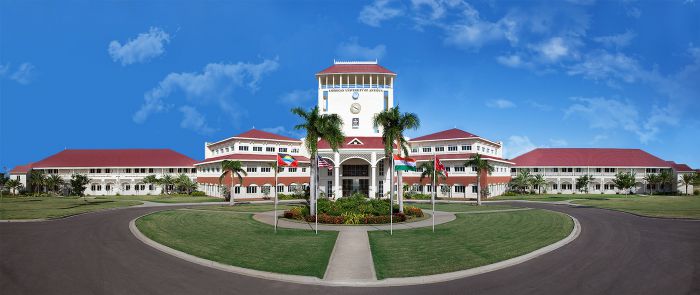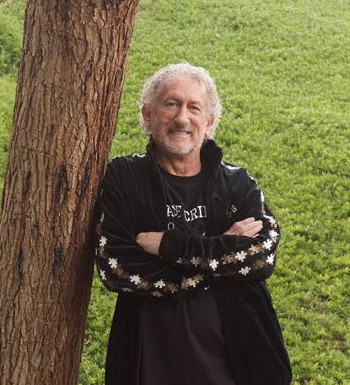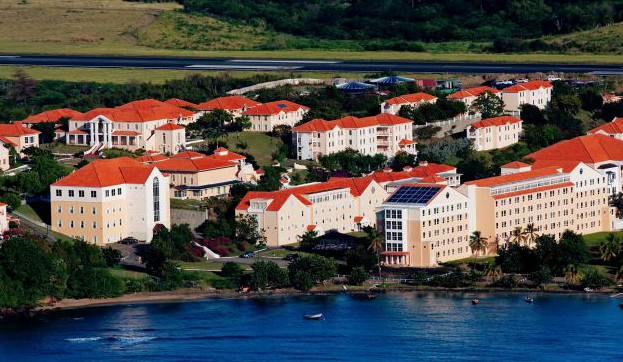
California State University, Dominguez Hills (CSUDH) now guarantees that qualified students who want to earn Doctor of Medicine (M.D.) degrees can gain early admission to the American University of Antigua (AUA) or St. George’s University (SGU) in Grenada.
CSUDH recently signed memorandums of understandings (MOU) with the two West Indies universities to establish early admission programs (EAP). Designed primarily for pre-health students at CSUDH, the programs are also open to any students, regardless of major, who earn the required prerequisites, according to Thomas Landefeld, professor of biology and pre-health adviser in CSUDH’s Department of Biology and faculty adviser to the Pre-Health Society.

“The key thing is the prerequisites, not the majors,” said Landefeld, who developed both EAP programs and their admission requirements. “Since it’s a pre-health doctorate, the students who will likely apply for the programs are studying biology, chemistry, and possibly physics, and are interested in entering such fields as medicine, dentistry, pharmacy, nursing, occupational therapy, physical therapy; anything that has to do with health care. But students from other areas, like psychology or dance, may apply as long as they complete the prerequisites.”
St. George’s University has more than 14,000 students who hail from 140 countries. Its students benefit from technically advanced facilities and a thriving multicultural campus that offers degrees in medicine and veterinary medicine. The university also confers independent and dual graduates in the sciences, public health, and business.
The American University of Antigua’s College of Medicine is known for its “learner-centric” curricula, and for granting opportunities to underrepresented groups to “foster a diverse academic community.” AUA is also committed to “addressing the impending physician shortage with an emphasis on primary care.”
According to Landefeld, AUA and SGU are two of only five medical schools in the Caribbean, out of more than 50 universities, that are accredited in all 50 states in the U.S. This is significant for students who want to attain their residencies in the U.S., which is the next stage of their training.
The university is already inviting applications from CSUDH undergraduates; students who have completed the sequence of general biology (BIO 120/122), general chemistry (CHE110/112), organic chemistry (CHE310/312), general physics (120/122) and one semester of calculus (MAT 171 or 191). Applicants must have 3.3 GPA or above, have taken the Medical School Admissions Test (MCAT) and, preferably, have completed their baccalaureate degrees prior to matriculation in either medical school.
“There are a few other things students need to satisfy, such as having faculty recommendations, ‘personal statements’ that tell us who they are, and hands-on experience in their fields,” said Landefeld. “One unique thing about these Caribbean schools is that while U.S. universities typically have one application period a year, these two campuses have three application or ‘entry points’ a year. This means, for example, a student could get accepted into one of the colleges for the fall, winter or spring terms.”
When Landefeld gives students advice regarding applying to medical school he usually recommends that they consider a few options because often their first choice will not work out. He says that only about 40 percent of the students who apply for medical school in the U.S. are accepted.
“Getting into any medical school is tough. They have to go through the extensive regular application process, hold out hope that they get an interview, do extremely well during the interview, and then wait to see if they get in,” explained Landefeld, who works closely with graduate school applicants. “When I work with students through our EAP programs, and they meet the credentials and qualifications, they will be guaranteed admission into the Caribbean school they choose. What’s nice is they don’t have to go to that university if they later get accepted to a U.S. medical school. Now that’s a great option.”
For students who are not pre-health majors but want to apply for AUA or SGU, Landefeld recommends they delay their CSUDH undergraduate graduation, if necessary.

“It’s all about flexibility. If students really want to make a major change in their studies and go for medical school, I try to tell them to delay their graduation to take the required prerequisite courses while they’re still here,” he said. “We don’t offer second bachelor degrees at our university anymore. Thus, once students graduate from CSUDH, it’s very hard for them to take more classes, as they have to go through the College of Extended Education and be a low priority on the class list.”
When admitted, the new CSUDH alumni medical students will spend two years in the Caribbean, then return to the U.S. and work two more years as students in hospital medical wards where they treat patients.
“Academically, these universities have quality faculty, facilities and curricula,” said Landefeld. “As such, I recommend these universities without any hesitation. We’ve had students go to them in the past, graduate and find residencies in the United States.”